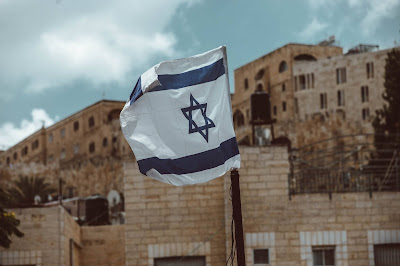by Rav Netanel Yosifun, yeshiva.co, translated by Hillel Fendel
Like all of Israel, I woke up one day a few weeks ago to the wonderful news that Jonathan Pollard had landed in Israel! This was happy and heartwarming, and I immediately ran to tell my wife. Years of suffering, hardships, and moral injustice had come to an end. The news article told the story of his and Esther's flight to Israel, and their warm greeting by the Prime Minister.
And yet, despite the joy of the event, I found myself singularly unexcited. I felt that the thrill of the news had simply melted away amid the shallow day-to-day routine. It's true that there were some objective factors – such as the fact that Pollard had served out his full 30-year sentence without even a day subtracted for good behavior or other reasons, and that he then remained another five years with electronic shackles, unable to leave his house after 7 PM, and the Corona restrictions surrounding his return home. But all in all, the enthusiasm was not what it could have been had he come home 10-15 years ago.
And then came the afternoon, and with it, the airing of a video showing our brother Jonathan deplaning and bending down to the ground of the holy Land of Israel – and kissing it. Suddenly, a wave of excitement flooded over me, accompanied by tears streaming freely down my cheeks.
In one moment, Jonathan's long years of yearning in prison to return home became an echo of the voice of an entire nation returning home after centuries of Exile, returning to the bosom of its own national Mother Earth.







